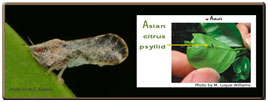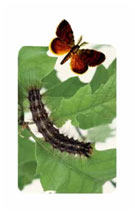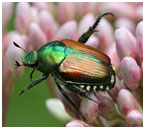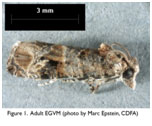- Agricultural Commissioner
- About Us
- FAQs
- Funding
- How We Are Funded
- County General Fund
- Pesticide Use Reporting
- Oak Death Inspection
- Pierce’s Disease Control
- Pierce’s Disease Nursery Treatments
- Organic Crops Program
- Seed Inspection
- Nursery Inspection
- Farmers Market Inspection
- Land Use Planning
- Pest Control Business Registrations
- Citrus Maturity Inspection
- Programs
- How We Spend Our Time
- Pest Detection and Eradication
- Citrus Inspection and Commodity Regulation
- Pierce’s Disease Control
- Pest Exclusion and Plant Quarantine
- Seed Inspection
- Nursery Inspection
- Farmers Market Inspection
- Egg Quality Control
- Apiary Inspection
- Crop Statistics
- Pesticide Use Enforcement
- NPDES MS4 Permit Compliance Inspections
- Land Use Planning
- Toland Landfill Project
- Weights & Measures
- FORMS/DATA
- Notices
- APAC
- SALC GRANT
- Crop Reports
- Contact Us
- Agricultural Commissioner
- About Us
- FAQs
- Funding
- How We Are Funded
- County General Fund
- Pesticide Use Reporting
- Oak Death Inspection
- Pierce’s Disease Control
- Pierce’s Disease Nursery Treatments
- Organic Crops Program
- Seed Inspection
- Nursery Inspection
- Farmers Market Inspection
- Land Use Planning
- Pest Control Business Registrations
- Citrus Maturity Inspection
- Programs
- How We Spend Our Time
- Pest Detection and Eradication
- Citrus Inspection and Commodity Regulation
- Pierce’s Disease Control
- Pest Exclusion and Plant Quarantine
- Seed Inspection
- Nursery Inspection
- Farmers Market Inspection
- Egg Quality Control
- Apiary Inspection
- Crop Statistics
- Pesticide Use Enforcement
- NPDES MS4 Permit Compliance Inspections
- Land Use Planning
- Toland Landfill Project
- Weights & Measures
- FORMS/DATA
- Notices
- APAC
- SALC GRANT
- Crop Reports
- Contact Us
Pest Detection and Eradication





Pest Detection and Eradication programs are responsible for early detection and control of various pests not presently established within the state or the county, but which are known to be a threat to agriculture, forests, urban landscapes, open space, or the environment. Some of these pests may be familiar to you such as the Mediterranean Fruit Fly, the Japanese Beetle, and the Gypsy Moth but there are many more. Not all exotic pests are insects; some are plant diseases, weeds, nematodes, or vertebrate pests.
The County Agricultural Commissioner is a state plant quarantine officer pursuant to Food and Agricultural Code Sections 5101 and 5102. A State Interior Quarantine was established in 2008 within a six square mile area in Ojai where the Gypsy Moth was detected. A joint project between the county and the state resulted in eradication of the pest. Exotic pests or pests not currently present in Ventura County may be detected in a variety of ways. Structured detection programs involving the monitoring of various insect traps are conducted by the California Department of Food and Agriculture. County inspectors Inspecting incoming agricultural products often detect exotic pests which may pose a threat to our agricultural industry. Pests are rated by the state as A, B, C, D or Q depending on the action required if found.
A-Rated pests are pests know to be very harmful and for which the state has developed an action plan which generally results in an established quarantine area and a joint state/county eradication project. A Q-Rated pest is a pest that is suspected to be very harmful but whose status is uncertain because of incomplete identification, or inadequate information. Generally these pests are temporarily rated Q until a complete determination of their status is made.
A B-Rated pest is a pest known to be harmful, but which is eradicated or controlled only if sufficient resources are available at the local level. These are pests which the state no longer has funds to control. A B-Rated pest may also be a pest that only requires action if it is found in a nursery. A C-rated pest is a pest which may be harmful but is of common occurrence. It does not require action unless its population is found in such high numbers that the commodity is considered commercially unclean. Again these are pests for which no funds are available for control programs, although they may pose a threat to the local agricultural industry.
A D-Rated pest does not require any action if found. Generally these pests already occur in the area. The introduction of harmful pests that do not occur in the area is one of the greatest threats to our agricultural industry. Unfortunately the present condition of the state budget has adversely effected funding for control and eradication. Inspection stations at the state borders are often unmanned or closed altogether. Funding for eradication and control of pests once they are found is often not available and the local community is left “holding the bag”. While it is generally judged that early detection and eradication are much more cost effective than the cost to control a pest once it is established, the funds are simply often not available and the pest is left to spread unimpeded. In addition eradication and control programs that involve the application of agricultural chemicals are very unpopular with urban residents who may not perceive that they have any stake in the agricultural industry, and are often reluctant to participate in these efforts if the pest is not a threat to them.
Members of the public who wish to report a pest should call
REPORT A PEST (CDFA Pest Hotline)
1(800) 491-1899
Or access them on the web at https://cdfa.ca.gov/plant/reportapest/



